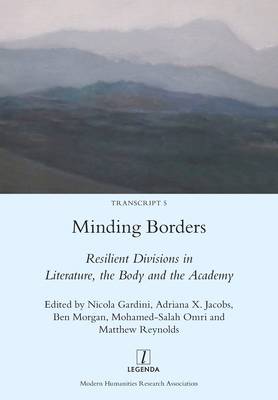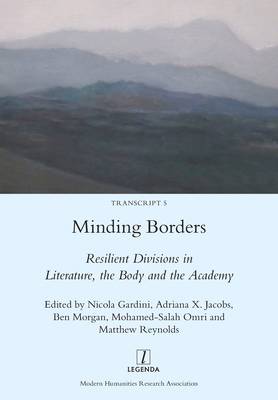
- Afhalen na 1 uur in een winkel met voorraad
- Gratis thuislevering in België vanaf € 30
- Ruim aanbod met 7 miljoen producten
- Afhalen na 1 uur in een winkel met voorraad
- Gratis thuislevering in België vanaf € 30
- Ruim aanbod met 7 miljoen producten
Minding Borders
Resilient Divisions in Literature, the Body and the Academy
Omschrijving
Both comparative criticism and translation cross borders, yet borders that have been crossed still exist. Even a border that has been dismantled is likely to reappear in a different place, or as a less obvious set of limiting practices: migrant texts and migrant ideas, like migrant people, may not achieve full citizenship in their new locations. Of course, there is a creative aspect to borders too, as postcolonial theory in particular has emphasized. Borders are contact zones, generators of hybridity, spaces of exchange, cross-fertilization, and enrichment. For all these reasons, borders require minding - thinking about, managing, even in a sense policing.
Rather than celebrating the crossing of borders, or dreaming of their abolition, Minding Borders traces their troubling and yet generative resilience. It explores how borders define as well as exclude, protect as well as violate, and nurture some identities while negating others. The contributors range comparatively across geography, politics, cultural circulation, creativity, and the structuration of academic disciplines, hoping that the analysis of borders in one domain may illuminate their workings in another. Whatever other form a border takes it is always also a border in the mind.
Specificaties
Betrokkenen
- Uitgeverij:
Inhoud
- Aantal bladzijden:
- 240
- Taal:
- Engels
- Reeks:
- Reeksnummer:
- nr. 5
Eigenschappen
- Productcode (EAN):
- 9781781883662
- Verschijningsdatum:
- 3/06/2019
- Uitvoering:
- Paperback
- Formaat:
- Trade paperback (VS)
- Afmetingen:
- 170 mm x 244 mm
- Gewicht:
- 390 g

Alleen bij Standaard Boekhandel
Beoordelingen
We publiceren alleen reviews die voldoen aan de voorwaarden voor reviews. Bekijk onze voorwaarden voor reviews.










